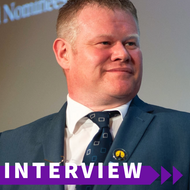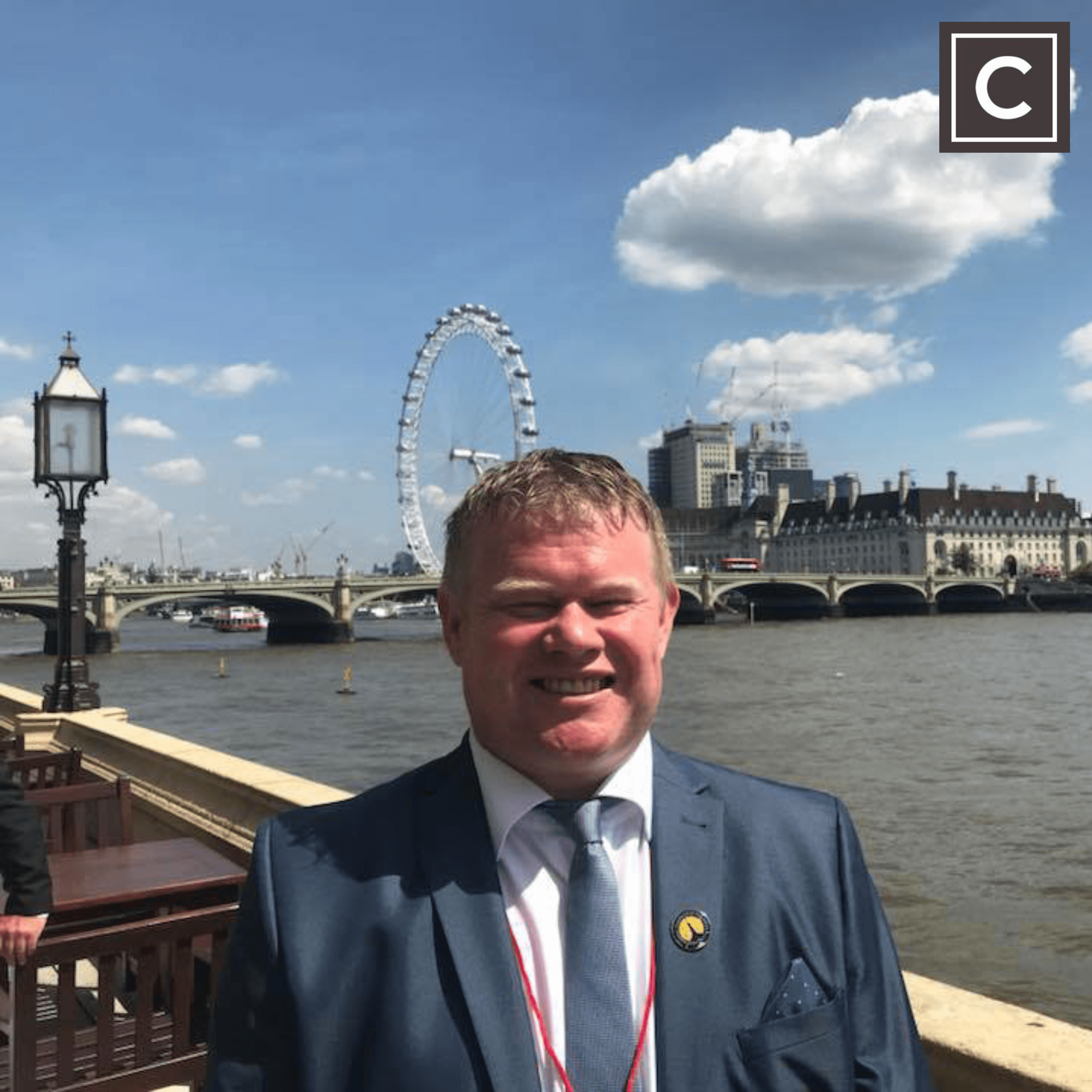Interview: Andrew Crook, National Federation of Fish Friers
Posted by Stelios on 28th Sep 2021 Reading Time:
With The NFFF helping to lead a campaign to bring about VAT reform, we quizzed President Andrew Crook on the key requests, what he hopes to achieve and what he thinks is the most likely outcome. We hope this in-depth interview will give you enough information to get behind the campaign yourself.
What do you think the issues are with the current way VAT is implemented on hot food?
We all need to pay our taxes to ensure the vital services we all benefit from are funded; I think the problem is how that burden is distributed. It can’t be right that a bakery selling a pie on the cool down does not attract VAT but a fish and chip shop cooking to order (so also on the cool down) does. The argument that the bakery is not intending for it to be consumed hot is nonsense; a commuter buying a cheese and onion pasty at 10am is not going to carry it around all day to take home, so by extending VAT to all of hospitality would certainly be a fairer approach.
I think the threshold needs to be looked at. I can’t see how any takeaway can survive while trading legitimately below £85,000 per annum but a quick check on any business transfer site will show that there are quite a lot of takeaways up for sale claiming just that, and the jump to standard rate is a huge leap just to cover the extra VAT.
We also have the flat rate scheme that you can enter if your VAT taxable turnover is going to be less than £150,000 over the next 12 months, until your turnover (inc VAT) hits £230,000. This scheme is useful for some businesses, but you have to say it doesn’t encourage growth.
The 20% standard rate does place a massive burden on businesses that pay all their dues, but everybody knows businesses around them where that is not necessarily the case either by purposely restricting their openings to keep below a level or by other means. It is hard to compete with a business that has a 20% advantage over you, especially when you also try to remunerate your employees well, use more expensive but more environmentally friendly packaging and want to invest in your business and team.
At 20% we are getting squeezed too hard at source, the VAT reduction has enabled us to not only cope with the higher operating
costs we now have but also to invest in equipment and training which in turn creates more VAT receipts further down the chain and creates more jobs.
We conducted a survey of our members and over 80% said they would be considering their future in business should VAT return to 20%. I think fish and chip operators feel the pinch more than some of the other cuisines currently as our main protein is very expensive and the public expect it to be sold at a lower margin than some of the other takeaway options, but other proteins are likely to increase in price over the coming years.
With what we have just been through, I think now is the opportunity to sit down with Government and plan the future of the hospitality sector and ensure it is given the room to breathe and grow. It is not one vital to the economy but it does provide jobs and as we all found, the social side of hospitality is so important to our own wellbeing and our communities.
What is the NFFF doing to achieve this?
The NFFF has been trying to highlight the issues around VAT since its introduction. I think arguing that there should be no VAT on takeaway food is unrealistic, but we have pointed out that the current system damages the very businesses that do the things that Government say they want to see.
We had the KPMG Protective Claim back in 2011, I didn’t think it had a high chance of success but it was one of those things that if we didn’t get involved with then the industry would be asking why not. I think the argument Jaques Borrell had about reducing VAT for hospitality was a better one but by the time I had dialogue with Jaques we were already committed to KPMG.
We wrote to the PM in 2019 about VAT on the back of a conversation one of our members, Craig Buckley, had during a radio phone-in with Boris Johnson, but received a brush off from a minister in the Treasury. We were about to follow up on this letter when the pandemic hit, and obviously other things took priority.
The NFFF is part of the British Takeaway Campaign (BTC), the brainchild of Graham Corfield whilst he was UK MD of Just Eat. Graham’s vision has been of huge benefit over the past 18 months or so. I am Vice Chair of the BTC supporting the Chair Ibrahim Dogus. The BTC comprises representatives from most cuisines; there is an abundance of variety these days as you will know. We also have representatives from the supply side who attend the meeting including the Food Packaging Association and the Food Equipment Association (formerly CESA). Tony Sophoclides from UKHospitality also often attends which helps make sure that we have the opportunity to be aligned on these issues. The BTC has a top London communications company that acts as secretariat; they are highly politically and media charged and perform a great role for the organisation.
As on the basis of which the NFFF was formed, working together gives us a louder voice. The BTC, through the various industry associations that make up its numbers, gives it the voice of over 50,000 takeaway businesses directly and also the many jobs that our sector creates in the supply chain. We have a huge industry and we can really play a big role in the economic recovery if we are given the support we need.
Your letter last year was a great initiative, we have to make sure we are realistic about what we ask from Government, and after our conversation recently I knew your follow up one would be perfect.
I would encourage everybody out there to write to their MP and tell them the importance of communicating with the sector. We want to work with Government, just as we did during the pandemic as Government needed to understand the practicalities of the day-to-day running of hospitality businesses, the same must be said about how best we can help the recovery. Building back the same is not an option, the landscape has changed immeasurably, we will only get once chance to get this right and if we fail many of the good businesses and operators that we currently have will leave the industry.
We have released a 5-point plan to get the sector the support it needs, and I have a meeting next week with officials from DEFRA and BEIS to discuss some of the challenges the sector faces and hopefully, start what can be a continued dialogue with Government on these issues with the sector.
In your mind, what’s a realistic outcome?
That’s a tough one as we have a huge budget deficit and it needs to be paid back. I guess it will come down to putting a well-argued case to Government and on their appetite to support independent businesses. I think there is a huge argument for extending the 12.5% VAT beyond April next year, giving the sector time to talk to Government about a way forward that does not jeopardise the very businesses we should be supporting and encouraging to grow. This extension would give us the time to ensure the foundations are laid correctly and that we can then provide the quality jobs that Government want us to provide, with great training and opportunities. If we don’t take this time then, unfortunately, all the independent businesses that add colour and vibrancy to our high streets will be squeezed out by the chains – I think that would be a real shame.
An important point to note, we are not asking to introduce measures that will reduce tax receipts but measures that, once implemented, will yield more tax receipts but spread across more businesses.
What are the benefits for our industry?
I think, and quite rightly, the role of the employee and their standing in the business has changed over the years and very much so during Covid. People can be more selective about where they work and unfortunately the nature of hospitality is that you need your workforce mostly when others are enjoying their leisure time. The hours are not attractive, the work is hard at times and unfortunately the sector has got a reputation for not paying well. That said, some thrive in a busy environment, but we need to be able to pay them well for doing it. Let’s not forget that hospitality is often the first experience young people get of employment, giving them valuable life and social skills, we don’t want them leaving feeling we have taken advantage of them!
I think jobs in takeaways are often looked down on but historically there have been a lot of cash in hand jobs where the employee has no rights and can be disposed of at the drop of a hat. This kind of employment needs to be a thing of the past, it is difficult for a business to pay their staff well when others don’t and that is further compounded by the fact that they may not be passing on all of the VAT they should or keeping under a threshold (VAT or Flat rate).
By levelling up (the buzzword of the moment) we don’t penalise the operators who are doing things right and slowly we can change the reputation of the jobs in our sector. I have recently seen many of the coastal shops closing to take their employees away after a busy summer where they have had staffing issues to cope with. What a great example of what can be done if hospitality businesses have the means to do it, and I bet their teams feel very valued and hopefully tell others what a great industry it is to work in.
There is an element of fraud in our industry and these shops tend to offer huge portions cheaply to attract enough custom to make it worthwhile. This has two effects, it makes legitimate operators look expensive and means we end up having our margins squeezed between increased costs and VAT, it also doesn’t do the work we do on obesity much good!
Have you any evidence where other countries have benefited from VAT being lowered?
17 states in the EU have a reduced rate for hospitality businesses and it has proved that it creates jobs and growth. In 2017, the rates in most countries for hospitality were around half the standard rate, so we are not asking for something that has not been tested elsewhere. I also imagine many of those who have parity between standard rate and hospitality rate experience a lot of fraud so keep the rate high to counteract that.
In 2012, Sweden lowered its rate of VAT from 25% to 12% and saw employment rise by 8%, and in Germany they saw nearly 50,000 jobs created after they reduced their accommodation VAT down from 19% to 7%.
When France reduced their VAT in 2009, companies going bankrupt fell by 17% saving tens of thousands of jobs, I imagine post- pandemic that would be far more!
All of these are proven examples of the benefit of a Government taking a brave step and working with a sector, and we need to show that we all have the same goals and that the sector has the desire to help the Government meet some of its targets, especially when it comes to getting people into employment.



